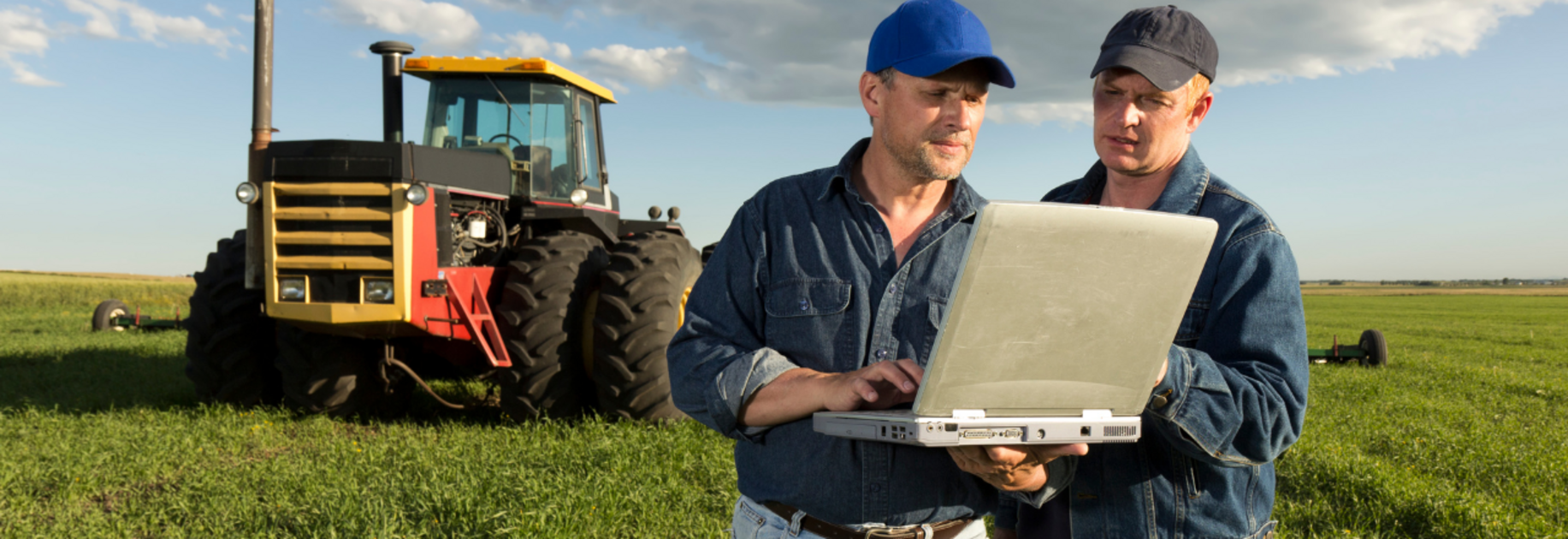Farmer and Adviser Q&A
FA Contributor
26 December 2024, 2:08 AM
 Farming and Financial Planning
Farming and Financial PlanningAdvisor Contribution by Catapult Wealth | Dec 20, 2024 | Farming, Financial Planning, In the media
1.Equipment Financing
Farmer
I’m thinking of buying a new tractor, but the cost is pretty high. What are my financing options here in Australia?
Financial Adviser:
In Australia, you have several options. You can take out a Chattel Mortgage, Finance Lease, or explore loans through schemes like the Regional Investment Corporation (RIC) loans. Each option has different benefits.
Farmer:
Can you explain the difference between a Chattel Mortgage and a Finance Lease?
Financial Adviser:
Sure! A Chattel Mortgage allows you to own the equipment from day one. The lender secures the loan with the tractor itself, and you make repayments over time. You can claim GST credits on the purchase and deduct depreciation and interest expenses.
A Finance Lease is different. You don’t own the tractor — the finance company does. You make regular payments to lease it, and at the end of the lease, you can choose to buy it or upgrade to a new one. It’s good for cash flow since the payments are lower than a Chattel Mortgage, but you won’t get ownership unless you buy it at the end.
Farmer:
I’d rather own it and take advantage of the GST credits, so I think a Chattel Mortgage is better for me. What’s next?
Financial Adviser:
You’ll need to provide your financial statements — typically your profit and loss statement, balance sheet, and tax returns. If you qualify, you might be able to use the Australian Government’s Temporary Full Expensing scheme to deduct the full cost of the tractor in your taxes for the year of purchase.
Farmer:
That sounds like a great tax benefit. How do I apply for a Chattel Mortgage?
Financial Adviser:
We’ll compare lenders to find the best rate and terms. You’ll want to prepare a deposit (if required), but many lenders offer 100% finance for farm equipment if your financials are strong.
2.Managing Off-Season Cash Flow
Farmer:
Cash flow is always tight during the off-season. What can I do to manage that better?
Financial Adviser:
It’s a common challenge for farmers. One option is to use a Farm Management Deposit (FMD). This allows you to set aside pre-tax income in good years and draw on it during tougher times, reducing your taxable income in good years.
Farmer:
How does the Farm Management Deposit (FMD) work exactly?
Financial Adviser:
Here’s how it works: In profitable years, you deposit funds into an FMD account, and those funds are tax-deductible for that financial year. When you withdraw the funds in a later year, they’re treated as taxable income. It’s a way to smooth out the highs and lows of farm income. The deposit must be held for at least 12 months to qualify for the tax benefit.
Farmer:
That sounds useful. What if I need extra cash on top of that?
Financial Adviser:
You can also look at a Seasonal Overdraft. It’s a type of flexible credit facility tailored for farmers. It allows you to borrow up to a certain limit during the off-season, and you only pay interest on what you use. It’s more flexible than a standard term loan.
Farmer:
How do I qualify for an overdraft?
Financial Adviser:
You’ll need to provide your financials and cash flow projections. Lenders will assess your ability to generate income during harvest to repay the facility. Because it’s secured against your farm assets, rates are generally lower than unsecured loans.
3.Risk Management & Insurance
Farmer:
What can I do to protect my crops from disasters like floods or bushfires?
Financial Adviser:
The best option is Multi-Peril Crop Insurance (MPCI). It protects you against risks like drought, flood, hail, and bushfire. This type of insurance covers both yield losses and income loss.
Farmer:
Is it expensive?
Financial Adviser:
It depends on the crops you grow and the level of coverage you choose. However, the Australian Government sometimes provides subsidies or rebates on insurance premiums, especially after natural disasters. It’s important to weigh the cost of insurance against the potential financial loss if disaster strikes.
Farmer:
Can I claim any of these insurance premiums on my taxes?
Financial Adviser:
Yes, crop insurance premiums are typically tax-deductible as a business expense, so you can claim them when you do your tax return.
Farmer:
Is there anything else I should consider?
Financial Adviser:
Yes, review your farm’s business interruption insurance. If a bushfire or flood disrupts operations, this insurance covers lost income. Some farmers also look into livestock insurance to protect against disease or theft.
4.Government Grants, Loans & Subsidies
Farmer:
Are there any government grants or schemes I should be aware of?
Financial Adviser:
Yes, definitely. Here are a few key ones for Australian farmers:
Regional Investment Corporation (RIC) Loans – Low-interest loans for drought resilience, on-farm improvements, and more.
Drought Assistance Programs – Support for farmers impacted by drought, including grants and loans.
Natural Disaster Relief and Recovery Arrangements (NDRRA) – Financial support after natural disasters like floods or bushfires.
AgriFutures Australia Grants – For specific agricultural innovations and diversification.
Farmer:
How do I apply for an RIC loan?
Financial Adviser:
You’ll need to submit an application with your financial records, details of the proposed project (like a water infrastructure upgrade), and a cash flow projection. RIC loans often have interest-free periods to help with cash flow, so they’re worth looking into.
5.Retirement and Succession Planning
Farmer:
I want to make sure my kids can take over the farm when I retire. How do I plan for that?
Financial Adviser:
Succession planning is crucial for Australian farmers, especially with issues like Capital Gains Tax (CGT) and Stamp Duty. First, we’ll look at whether you want to gift, sell, or transfer the farm to your kids.
Farmer:
I’d rather pass it on without them having to buy it. Is that possible?
Financial Adviser:
Yes, but there are tax implications. If you gift the farm, Capital Gains Tax (CGT) may apply, but there are concessions, especially for farming businesses. The Small Business CGT Concessions may reduce or eliminate the tax if you meet the eligibility criteria. We can also explore setting up a family trust to transfer ownership more smoothly.
Farmer:
That sounds complex. What about Centrelink payments? I heard giving away assets might affect my pension.
Financial Adviser:
That’s true. If you gift the farm to your kids, Centrelink will treat it as a deprivation of assets, which could reduce your pension eligibility. However, if you transfer it under a family succession plan, there are some exceptions. We’ll want to discuss the best way to structure the transfer to avoid issues with Centrelink.
Farmer:
Can you help with that?
Financial Adviser:
Absolutely. We’ll work with a solicitor to draft the succession plan and structure it to minimise tax, maintain your pension, and keep the farm running smoothly.
Summary of Key Tools & Schemes for Farmers
| Category | Australian Options |
| Equipment Finance | Chattel Mortgage, Finance Lease, RIC Loans |
| Cash Flow Tools | Farm Management Deposit (FMD), Seasonal Overdraft |
| Insurance | Multi-Peril Crop Insurance (MPCI), Livestock Insurance |
| Govt Support | RIC Loans, Drought Assistance, NDRRA |
| Succession | Family Trusts, Small Business CGT Concessions |

Tony Catt
DIRECTOR - Catapult Wealth
With over two decades of experience in the finance industry, Tony has seen many changes in the markets. Tony has a background in accounting, research, stockbroking and financial planning which allows him to provide a broad range of advice to his clients on different stages of their life. Tony has significant experience in lecturing and seminars, providing help to Regional Skill Training (RST), the Australian Shareholders Association (ASA), regional TAFE and the ASX investor hours for over a decade.
After marrying into a farming family, Tony decided to provide more help to family businesses in South Australia. Succession planning, retirement planning, education of the next generation and protection of wealth are major issues that have been identified.Tony is ideally skilled to help families and as a specialist Self-Managed Super Fund adviser, Tony has the ability to transition clients into retirement with cost effective, tailored retirement solutions.
Keep it simple is our main approach and we ensure that you understand every facet of how your money is invested.
QUALIFICATIONS INCLUDE:
Bachelor of Commerce (Adelaide University)
Graduate Diploma in Applied Finance (Kaplan)
Graduate Diploma in Financial Planning (Kaplan)
Fellow of FINSIA
Contact Us
McLaren Vale
233 Main Road